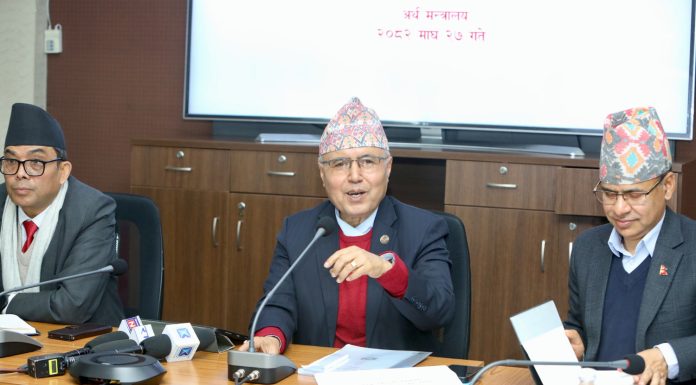Kathmandu, 30 September. While e-commerce has been flourishing in the developed countries for several years, the COVID-19 pandemic has pushed the developing ones, including in South Asia, with far small e-commerce footprint to embrace digital commerce.
However, when internet access itself is limited and quality of infrastructure and logistics is questionable, expansion of e-commerce in much of South Asia will require significant public-private cooperation in important areas including skilling people, according to the experts in a virtual meeting titled ‘Future of e-commerce in South Asia’ organized by South Asia Watch on Trade, Economics and Environment (SAWTEE).
Dr. Ratnakar Adhikari, Executive Director of Enhanced Integrated Framework (EIF) Secretariat at the WTO, Geneva, emphasized that South Asia region holds tremendous potential for ecommerce but also faces critical challenges—primarily, inadequate regulatory arrangements, poor infrastructure, and dearth of skills—which have to be resolved through collective efforts, policy support and through building an environment of trust.
Dr. Adhikari also highlighted the importance of trade facilitation and logistics for the development of e-commerce ecosystem.
Shandana Gulzar Khan, Member of the National Assembly of Pakistan, delivering the keynote speech, suggested how, due to a host of regulatory weaknesses, e-commerce firms in Pakistan faced taxation-related hurdles.
She observed that although e-commerce offered opportunities for small suppliers, there is real possibility of elite capture in the rapidly evolving digital trade given that good quality internet access in Pakistan remains constrained while the skill deficits remain unaddressed.
Vocational skills schools which should be at the forefront when it comes to skilling “remain out of touch with the skilling requirements of today”, she remarked. She added that policymakers need to look into the least common denominator when it comes to facilitating e-commerce so that it does not end up serving the elites only.
Shamika N. Sirimanne, Director, Division on Technology and Logistics, United Nations Conference on Trade and Development (UNCTAD), Geneva, suggested that the key issues in expansion of e-commerce in the region are quality of logistics and internet affordability.
Sirimanne observed that cross-border trade, which is an important component in e-commerce, continues to face major supply chain inefficiencies due to lack of digitization. Sirimanne emphasized that areas in the supply chain—such as couriers and postal services—that require reforms. She added that there is a need to enhance trust in electronic payments which continues to be low.
Promod Chhetri, General Manager, Royal Securities Exchange of Bhutan, suggested that while COVID-19 pushed switching to digital marketplaces, e-commerce firms in Bhutan found it difficult to handle orders, at least initially.
As the orders flooded, the websites of the e-commerce firms went down, and the logistics were such that only a portion of orders could be delivered.
He discussed the rationale and efforts in enabling Bhutanese farmers to sell potatoes online via commodity exchange. Prior to the online mode, farmers in Bhutan had auctioned their potatoes at auction yards.
Doing this not only entailed educating farmers and traders but also automating the grading of potatoes, Chhetri remarked.
Deepali Gotadke, Founder and Business Owner, Web Dreams, an e-commerce firm in Hubli, Karnataka, suggested that smooth and low-cost electronic payments including international payments will be critical if e-commerce is to expand in the region.
Such online transactions need to be secured given the threat of cybercrime, she added.
Surakchya Adhikari, Co-founder and Chief Operating Officer of Thulo.com, Kathmandu, discussed the challenges faced by e-commerce players in Nepal in the initial lockdowns of the COVID-19.
Inadequate availability of merchandize and delivery-related difficulties owing to the lockdown regulations were the principal obstacle, she remarked.


























